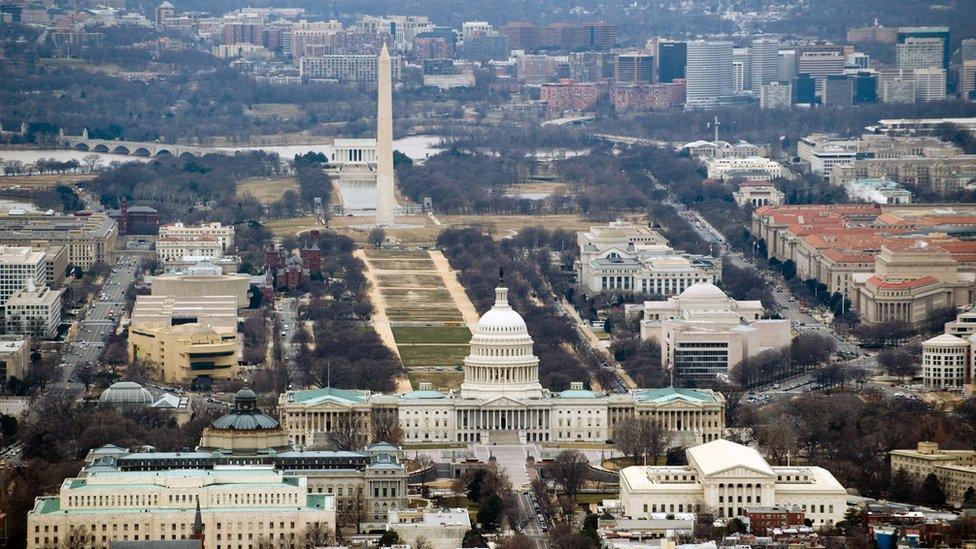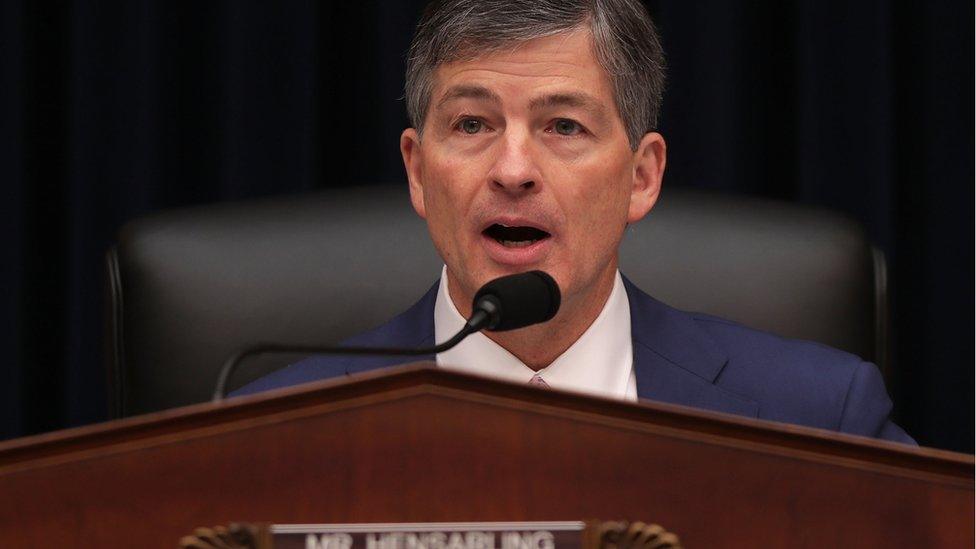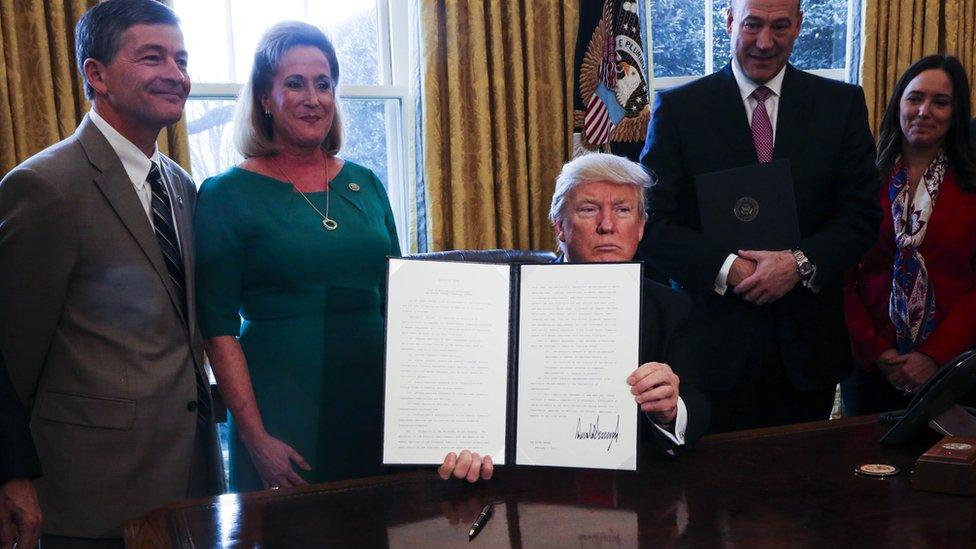Republicans take aim at Dodd-Frank financial rules
- Published

A Republican push to overhaul US banking rules put in place after the 2008 financial crisis may be gaining momentum.
The US House of Representatives approved a bill on Thursday that would scrap federal bailout powers, ease requirements on banks and weaken the Consumer Financial Protection Bureau.
Supporters say the proposal simplifies regulation that has stifled growth.
However, opponents describe it as a "wish list" crafted by banks.
Few expect the sprawling, nearly 600-page document, which touches on everything from payday lending to bank bailouts, to become law in its current form.
No Democrats voted for the bill, which faces fierce opposition from the party in the Senate.
But success in the House is viewed as a sign of support for some of the other, more limited proposals that are being considered.
Paul Merski of the Independent Community Bankers of America, which represents the interests of smaller banks, said: "It's a good start to putting a comprehensive reform bill on the table and it's very aggressive, so it really sets the high-water mark for what can be done for regulatory relief."
What's this fight about?
The main target of the Financial Choice Act is the rules introduced after the financial crisis known as the Dodd-Frank Act.
Supporters say Dodd-Frank has made the financial system safer, increasing protections for consumers, improving stress tests and forcing large financial institutions to hold more money for use in the event of a financial shock.
But opponents, which include community banks and other financial institutions, say it created an overly complex set-up that has inhibited growth, particularly for small businesses.

Rep. Jeb Hensarling is sponsoring a bill to roll back financial
"There is a better way," Rep Jeb Hensarling, a Texas congressman who sponsored the bill, said on Wednesday. "We will replace complexity with simplicity."
What would the bill do?
The bill, which has White House support, would abolish bailout authority and weaken the Consumer Financial Protection Bureau, the agency that has pursued banks and other firms for wrongdoing during the crisis.
It would also loosen rules on home loans and allow banks to opt out of Dodd-Frank rules if they maintain a 10% ratio of capital to assets.
The Congressional Budget Office estimates the changes would lower the federal deficit by about $24bn.
But the proposal goes farther than just repealing Dodd-Frank.
For example, it would require shareholders to have a bigger stake in a company to propose changes, and abolish a new rule that requires financial advisers to act in the best interests of their clients.
Proposals like that have been criticised from a wide range of interests, including large investment firms and consumer groups.
"We think it is a really dangerous bill that would put our financial marketplace in a weaker position than it was," said Rachel Weintraub, legislative director and general counsel at the Consumer Federation of America.
Economists also dispute claims the bill has hobbled lending and other financial activities.
"Dodd-Frank is a highly imperfect bill, but it was a massive step in the right direction on many fronts," said Francesco Trebbi, a professor of economics at the University of British Columbia in Vancouver.
Prospects
The Financial Choice bill failed to move forward last year, but Republicans passed it at at the committee stage last month. It also has the backing of President Donald Trump.

The White House has promised to roll back Dodd Frank rules
But Mr Merski, the lobbyist for smaller community banks, said he believed there was bipartisan support in the Senate for some reform - at least for community banks, whose numbers have shrunk in recent years.
Barney Frank, the former US congressman from Massachusetts who was an architect of the Dodd-Frank law, told the BBC he thinks there is cross-party backing for giving support to smaller institutions.
Beyond that, he said, Thursday's vote was "theatre" that gives strict anti-regulation conservatives their moment: "It has no chance of becoming law."
Ms Weintraub said she remains worried the proposals will advance.
"We're concerned and we will be working hard to make sure it doesn't go anywhere," she said.